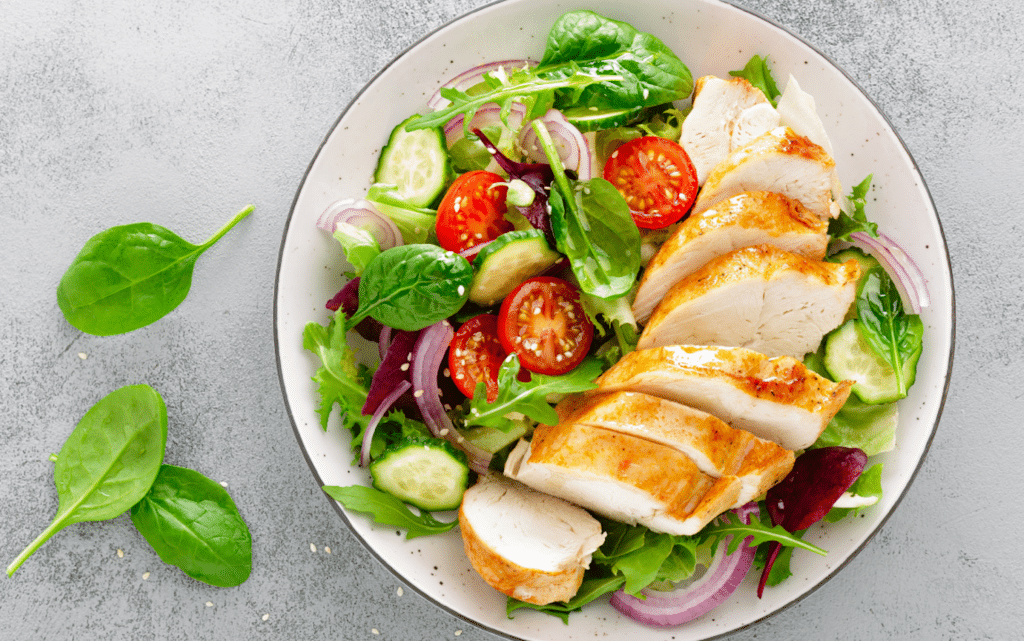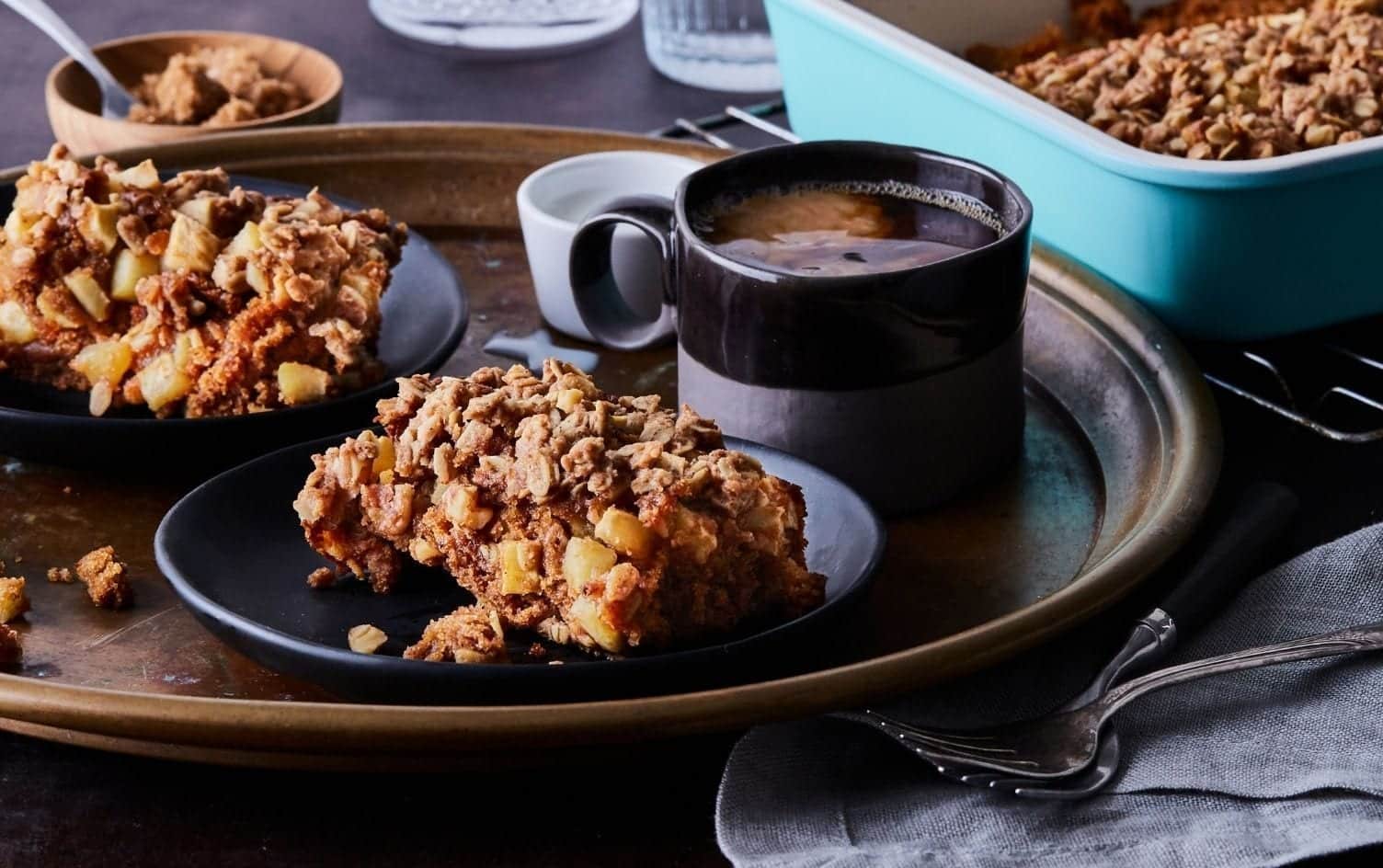Semaglutide or GLP-1 medications—like Ozempic and Wegovy—are all the rage in the weight loss community these days.
Not only are people all over social media touting the weight loss benefits, prescriptions for diabetes drugs and similar obesity medication may be up as much as 300 percent over the last few years, according to one report.
As for what to eat while on semaglutide, well, we just released a GLP-1 Nutrition Plan in the MyFitnessPal app dedicated just to that. But because the medication can make you feel fuller faster, you’ll likely eat smaller portions, which means you want to get the most bang for your buck in terms of nutrition. That’s why many experts recommend eating a well-balanced diet for the best results.
But what exactly does that mean? While there’s no one-size-fits-all answer, there are some general guidelines on what to eat while on Ozempic or any other semaglutide medications.
We spoke with registered dietitian and MyFitnessPal Scientific Advisor Maya Feller , MS, RD, CDN who shared some of the foods that may be most helpful.
1. Bone broth
Bone broth pulls double duty as both a protein source and a hydration source. DrFeller recommends drinking 8 ounces a day as part of your daily liquid intake.
Because bone broth contains electrolytes like sodium, potassium, and magnesium, it may help keep you hydrated better than plain water, one study shows.
2. Dates
“I really believe people who enjoy sweets should have them, in a mindful and intentional way, if they want to” Feller says. “It makes us all happier.”
To satisfy that sugary craving, she recommends dates. They’re a good source of fiber high in fiber and may not spike your blood sugar as much as other dried fruits, when consumed in moderation. .
One thing to note: If you’re dealing with early satiety, Feller advises limiting how many dates you’re snacking on at a time. “Potein is very important,” she explains, “so don’t fill up on dates and miss out on that important macronutrient.”
3. Tofu
Protein is an essential macronutrient for everyone, including those who are on semaglutide. Dr. Feller is a big fan of plant protein in particular, pointing out that most Americans aren’t eating nearly enough plants on a day-to-day basis.
She likes tofu as a healthy plant-based protein source. According to the USDA, a half-cup serving of tofu has about 22 grams of protein.
Along with all of the benefits of protein—like better bone health and appetite regulation—tofu has also been shown to reduce the risk of heart disease and help lower cholesterol.

You might also like:
Tofu vs. Tempeh vs. Seitan: What Are the Main Differences? >
4. Seafood
Not only is seafood another good source of lean protein, it also contains polyunsaturated fatty acids (PUFAs). Studies have shown these PUFAs to have anti-inflammatory properties, which can help prevent health conditions like arthritis and cardiovascular disease. They can also support immune health and lower blood pressure.
As for what specific seafood is best? Dr. Feller says whatever is accessible and affordable will do, whether that’s shrimp, salmon, or any other kind of fish. The key is to choose seafood that is as close to its unadulterated form as possible, with minimal added sugar, salt, or fat.
5. Summer Squash and cucumbers
Staying hydrated while on semaglutide medications is important. And while drinking water is an easy way to do that, you can also rehydrate by eating certain foods.
Dr. Feller suggests adding more vegetables with a high water content—like cucumbers, zucchini, and other summer squashes—into your diet. Not only will these provide you with more fluid to help with digestion, they also have some nutritional value. Win-win.
6. Cruciferous vegetables
Dr. Feller likes cruciferous veggies like cabbage, broccoli, cauliflower, or Brussels sprouts primarily for the gut health benefits. They contain certain compounds that can promote the growth of healthy gut bacteria and balance your microbiome. Some research has shown this may reduce the risk of certain types of cancer, too.
They’re also high in fiber, which can help improve digestion and keep you regular. This is especially important when you’re taking Ozempic, which slows your digestive system and increases how long it takes food and waste to exit your body.
If you’re taking a semaglutide medication like Ozempic—or plan to in the future—and need more guidance, check out MyFitnessPal’s new 7-day GLP-1 Nutrition Plan. It provides expert-backed tools and techniques to help you achieve sustainable weight loss through healthier habits. Whether that’s learning how to determine your protein needs or how to eat more fiber on the daily, our plan can help you hit your goals.

What are you waiting for?
Start our FREE GLP-1 Nutrition Plan Today >






